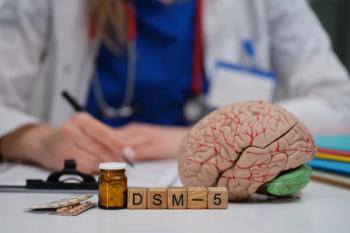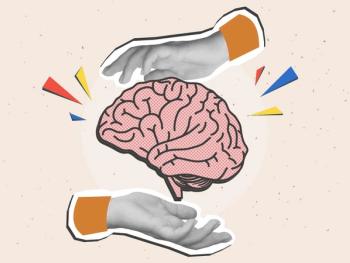
Reduced Depression in Patients With Cognitive Impairment, Using Precision Medicine Protocol
Key Takeaways
- The ReCODE program targets metabolic, infectious, immune, vascular, and toxic factors to address Alzheimer's disease mechanisms.
- Personalized interventions in ReCODE address inflammation, insulin resistance, nutrient deficiencies, toxin exposure, and hormonal imbalances.
A new study reveals the ReCODE program significantly reduces depression in patients with cognitive impairment, enhancing both mood and cognitive health.
A new prepublication study found significant reduction in depression scores in patients with cognitive impairment after use of the Reversal of Cognitive Decline (ReCODE) precision medicine program.1
The ReCODE program is a multitherapeutic, precision medicine approach which evaluates a range of contributing metabolic, infectious, immune, vascular, and toxic factors. The program, which uses computational algorithms to optimize evaluation and treatment, targets biological mechanisms that underlie Alzheimer disease. With personalized lifestyle and therapeutic interventions, ReCODE targets factors like inflammation, insulin resistance, nutrient deficiencies, toxin exposure, and hormonal imbalances. By addressing a multitude of factors related to cognitive decline and treating underlying influences, the ReCODE program may be able to alleviate both depression and cognitive decline.
“Our results underscore the ReCODE program’s capacity to deliver meaningful improvements in mood, in addition to the cognitive, biomarker, and neuroimaging benefits reported in earlier work. This supports the hypothesis that depression is not merely an epiphenomenon of neurodegeneration but a modifiable contributor to the disease course. Therefore, monitoring depression symptoms using validated tools like the PHQ-9 may offer a low-cost, easily administered, and clinically meaningful inclusion in tracking treatment response and disease progression in early-stage AD,” said the authors.
The program was developed by Apollo Health to treat Alzheimer disease and mild cognitive impairment and is now appearing effective for treating depression as well. The study assessed 170 patients presenting with cognitive decline and depression, as measured by the Patient Health Questionnaire (PHQ-9). PHQ-9 scores were evaluated at baseline and after 31 days of treatment, with scores of 10 or higher as the threshold for depression. Participants on average moved from moderate depression (score of 10-14) to mild (score of 5-9). Participants were provided with detailed guidance from physicians and health care teams to help address the factors identified by the ReCODE program. No single causative factor was identified; instead, several interrelated factors were identified in all participants.3
Patients experienced an average reduction of 3.96 points in PHQ-9 scores (P<0.0001).2 Those with more severe initial depression showed the greatest improvements. Data collected showed a robust and consistent treatment effect across the population.
The study is not yet peer reviewed and published but was noted as “early promising evidence of ReCODE’s potential to enhance both cognitive and emotional health.”1
"Depression is a common and devastating complication for individuals facing Alzheimer's disease and related conditions," said Ram Rao, MD, lead author of the study, in a press release. "Our findings suggest that by treating root causes of cognitive decline, we may also alleviate depression, significantly improving quality of life for patients and families."
References
1. Precision medicine protocol shows dual benefits: improved cognition and reduced depression. Press release. September 25, 2025. Accessed October 1, 2025.
2. Rao RV, Boyd A, Okada S, et al. Significant reduction in depression scores following implementation of the ReCODE program: evidence from PHQ-9 assessments. Preprint. 2025.
3. Rao RV, Kumar S, Gregory J, et al.
Newsletter
Receive trusted psychiatric news, expert analysis, and clinical insights — subscribe today to support your practice and your patients.







